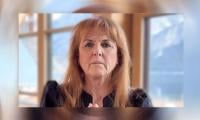References against Sharifs: NAB’s key witness divulges dual standards, bias of JIT
ISLAMABAD: The attorney hired by the Sharifs to defend themselves in the corruption references has outshined the National Accountability Bureau's key witness. Panama Papers JIT head Wajid Zia has been so far flattened by Khawaja Haris during the first three days of the cross examination as Zia was compelled to reveal the biases and dual standards of the JIT in the court. Haris succeeded in trapping the most important witness against the Sharifs to divulge dual standards set by JIT for different witnesses in a bid to conclude the desired outcome. Even Zia was caught lying in the court as first he said that in his 29 years of service in the Police Service of Pakistan, he has never sent a questionnaire to any of the witnesses in advance while the next day the JIT head admitted that the JIT with a consensus decision of sending the questions in advance sent a questionnaire to Jeremy Freeman in London through Quist Solicitors.
The star witness of NAB appeared either ill-prepared or a witness who replies to the defence questions with an interest in the outcome of the case that is why Zia is seen explaining all his replies during the cross examination. On one occasion when Wajid Zia tried to explain his answer, Khawaja Haris said that any witness who gives more explanations is considered to have an interest in the outcome of the case.
Role of Mian Nawaz Sharif in Avenfield Reference: Khawaja Haris made Wajid Zia reveal before the court that no documentary evidence or witness could establish Nawaz’s association with the London properties and the offshore companies in BVI. Zia confirmed that no letter or document from the law firm Mossack Fonseca declared Nawaz Sharif the owner of the companies or properties or he was real or beneficial owner of the two offshore companies. Neither the FIA BVI nor the AG BVI declared Nawaz associated with any of the off-shore companies. Zia also replied in negation that Nawaz was either a settler, trustee or beneficiary of the offshore companies. He also said that no evidence surfaced neither did any witness told the JIT that the bearers certificates of the offshore companies were ever issued in the name of Nawaz Sharif. None of the departments and their correspondences including land registry offices ever declare Nawaz Sharif the owner of London properties, Zia said while replying to a question. He also added that never a bill was ever issued in the name of Nawaz Sharif nor did any rent receipt carried his name. Wajid Zia said that JIT could not find any bank account which could establish that Nawaz Sharif paid for purchase of the London properties. Zia during his cross examination also said that no witness ever stated that Nawaz was the owner of Gulf Steel nor was beneficiary or associated with its sale later on. Regarding transfer of money from the sales proceeds of Gulf Steel, Wajid Zia told the court that there is no evidence that the money benefitted Nawaz Sharif and that even the letters from Al-Thani Family do not mention that Nawaz benefitted from the money they returned.
Dual standards of JIT regarding different witnesses: The JIT believed the contents of a private law firm, Mossack Fonseca true without bothering to consult, correspond, engage the said firm, without collecting the attached documents of the letters or without knowing to whom the letters were sent and upon whose request they were generated, Wajid Zia was compelled by Khawaja Haris to tell this to the accountability court. However, the same standard was not adopted for Qatari prince’s letters who not only sent two letters to the SC but also wrote three letters to the JIT endorsing the contents of his letters to the SC. Khawaja Haris asked numerous questions from Wajid Zia regarding Qatari letters sent by Sheikh Hamad bin Jasim to the Supreme Court and later to the JIT and Zia told the court that Qatari letters were not substantiated by associated documents that was why they have been rejected by the JIT. Haris made Zia reveal that in his three letters to the JIT dated 25th May, 2017, 11th June, 2017 and 26th June, 2017, the Qatari sheikh had endorsed the contents of his earlier two letters to the apex court. Zia admitted that the JIT had refused to send a questionnaire to the Qatari prince and also refused to get his statement anywhere else except Pakistan High Commission in Qatar. Zia also admitted that the Qatari prince through letters of the JIT was informed that he would be recorded and that he would not be allowed to get assistance from any of his accountants and that his interview may take hours of sessions.
When Zia was asked about the relevant documents of the two letters from Mossack Fonseca, he replied that the JIT did not get those documents. Yet it assumed the contents of the letters correct but the same was not the case with the Qatari letters.
Zia confirmed that two letters of Mossack Fonseca were certified by the BVI FIA but the JIT did not contact the law firm and that the two letters were supported by relevant documents which the JIT could not gather. Haris asked that did the JIT contact the issuing person named at the end of the letters of the law firm and ask him/her to record the statements, Zia replied, no. Zia also told the court that the JIT also never asked the BVI for the supporting documents of the law firm’s letters.
No questionnaire to Qatari prince and a list of questions for Jeremy Freeman: On Thursday, Wajid Zia told the court that in his 29 years of service in the PSP he has never sent a questionnaire to any of the witnesses. He said that it was decided by the JIT not to send a questionnaire to the Qatari prince. While the very next day, Wajid Zia told the same court while standing in the same witness box that Quist Solicitors sent a questionnaire to Jeremy Freeman regarding authentication of trust deeds presented by Hussain Nawaz. He said that it was consensus decision of the JIT to send the questionnaire including him, to Freeman.
Zia further told the court that after getting a reply from Freeman, the JIT termed it unsatisfactory but neither did it try to contact Freeman again nor did it ask Freeman for recording his statement.
Agreements of Sale of Gulf Steel: Zia was compelled by Haris to reveal before the court that the 1978 sale agreement of Gulf Steel was assumed to be true but he said that the agreement presented by the Sharifs regarding further sale of shares in 1980 was forged. Haris asked him to read before the court the relevant contents of the agreement in which Zia agreed that the 1978 agreement was to be registered in Dubai court while the 1980 agreement did not mention registration in any court. Zia said that the later agreement was termed fake because there was no record found in the Dubai courts. Haris asked him that when the agreement did not demand for registration in the court, was it necessary to get it registered? Haris asked the JIT’s diamond that did the JIT try to contact the owners of Ahli Family who bought Gulf Steel, the reply was no.
Transportation of machinery from Sharjah to Jeddah: Haris asked Zia that did he know that the machinery for setting up mill in Saudi Arabia was sent from Sharjah to Jeddah and not from Dubai to Jeddah? Zia replied that an MLA was sent to UAE and Sharjah was part of UAE. Upon which, Haris asked, “Do you known the letter of credit attached with the JIT report says that it was a second-hand re-rolling mill and not scrap?” Zia after reading the LC replied with a yes. Then Zia answered to Haris’ question that no MLA was sent by the JIT to the UAE authorities to confirm any transportation of second-hand re-rolling mill from Sharjah to Jeddah in 2001-2003.
Establishment of Al-Azizia Steel: Regarding set-up of Al-Azizia Steel, Khawaja Haris asked Zia that the JIT received evidence that it was set up by Mian Muhammad Sharif (late) and was transferred to three persons which Zia admitted. Al-Azizia Steel was established by Mian Muhammad Sharif and was transferred to Hussain Nawaz, Rabia Sharif and Abbas Sharif (late). The JIT could not find any evidence that Abbas Sharif and Rabia Sharif ever participated in the business or received any profits thereof from Al-Azizia Steel and that the JIT never issued any notice to Rabia Sharif or heirs of Abbas Sharif. Zia said that Hussain Nawaz first said that he was solely running the business and later said that there were two other shareholders. Haris succeeded in establishing that the JIT was biased towards the family of Nawaz Sharif as it deliberately missed out inquiring other shareholders and only focused on Nawaz Sharif’s son.
-
 King Hospitalized In Spain, Royal Family Confirms
King Hospitalized In Spain, Royal Family Confirms -
 Japan Launches AI Robot Monk To Offer Spiritual Guidance
Japan Launches AI Robot Monk To Offer Spiritual Guidance -
 Japan Plans Missile Deployment Near Taiwan By 2031 Amid Growing Regional Tensions
Japan Plans Missile Deployment Near Taiwan By 2031 Amid Growing Regional Tensions -
 Meghan Markle, Prince Harry Spark Reactions With Latest Announcement
Meghan Markle, Prince Harry Spark Reactions With Latest Announcement -
 Kate Hudson Reflects On Handling Award Season With No Expectations
Kate Hudson Reflects On Handling Award Season With No Expectations -
 6 Celebrities Who Have Been Vocal About Anxiety And 'panic Attacks'
6 Celebrities Who Have Been Vocal About Anxiety And 'panic Attacks' -
 Is This The Future Of Train Travel? Robot Dogs, Drones Are Redefining Public Transit Safety Through China’s New Metro Station Deployment
Is This The Future Of Train Travel? Robot Dogs, Drones Are Redefining Public Transit Safety Through China’s New Metro Station Deployment -
 Sarah Ferguson Seeks Hollywood Backing As Epstein Files Resurface
Sarah Ferguson Seeks Hollywood Backing As Epstein Files Resurface -
 China’s AI Milestone: ByteDance’s Doubao Chatbot Hits 100M Users During Lunar New Year
China’s AI Milestone: ByteDance’s Doubao Chatbot Hits 100M Users During Lunar New Year -
 Think You Know ChatGPT? Here Are 5 AI Levels You’ve Never Seen
Think You Know ChatGPT? Here Are 5 AI Levels You’ve Never Seen -
 Bitcoin Bounces From $62,000 As On-chain Metrics Signal Prolonged Weakness: Here Is Everything To Know
Bitcoin Bounces From $62,000 As On-chain Metrics Signal Prolonged Weakness: Here Is Everything To Know -
 Elon Musk Teases Official Grok CLI For Developers As AI Rivalry With Anthropic Heats Up
Elon Musk Teases Official Grok CLI For Developers As AI Rivalry With Anthropic Heats Up -
 Jennifer Aniston Ready To Walk Down The Aisle Again?
Jennifer Aniston Ready To Walk Down The Aisle Again? -
 Sarah Ferguson’s Plan Now That Andrew Is Thrown Into The Fire: ‘She’s Not Certain She’ll Come Out The Other Side’
Sarah Ferguson’s Plan Now That Andrew Is Thrown Into The Fire: ‘She’s Not Certain She’ll Come Out The Other Side’ -
 ‘The AI Doc’: What AI Leaders Told Daniel Roher Will Keep You Up At Night
‘The AI Doc’: What AI Leaders Told Daniel Roher Will Keep You Up At Night -
 Sarah Ferguson In Hiding As Arrest Fears Grow After Andrew Was Taken Into Custody
Sarah Ferguson In Hiding As Arrest Fears Grow After Andrew Was Taken Into Custody



